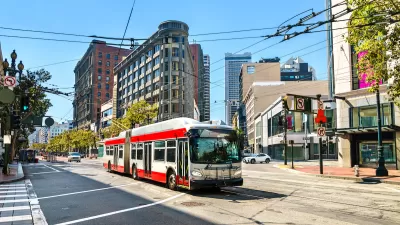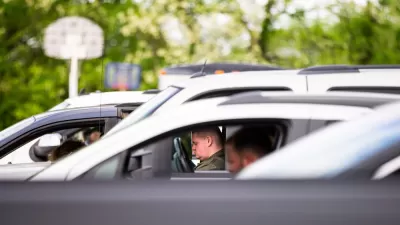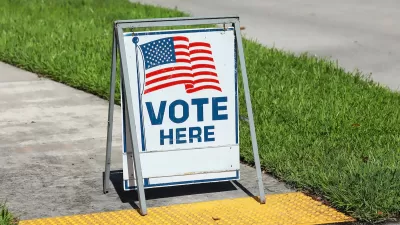The senator who introduced the legislation cited concerns about the state’s low levels of workforce participation, noting that a lack of transportation is one of the main reasons Alabama residents can’t participate in the workforce.

An Alabama state senator is proposing a new funding mechanism for public transit, citing concerns that many of the state’s residents don’t have access to jobs due to a lack of transportation. As Alexander Willis explains in an article for Alabama Daily News, “Alabama’s labor participation rate was 57.5% in August, among the lowest rates in the country. State lawmakers last year established a commission to investigate the root causes of the state’s low labor participation rate. A lack of reliable transportation was one of the key findings.”
Senator Linda Coleman-Madison (D-Birmingham) introduced Senate Bill 11 to improve the state’s public transit system, which frequently ranks among the least developed in the nation. The bill would add a $5 charge to vehicle license and registration fees to generate revenue for transit.
Coleman-Madison says the bill could have a transformative impact when combined with available federal matching funds. According to policy advocate Dev Wakeley, “State investment here could bring down more federal money, and if you’re talking about a good return on investment, you can’t really get much better than the four-to-one capital matching rate for federal funds.”
FULL STORY: Citing workforce needs, Alabama lawmaker pushes to fund public transportation

Study: Maui’s Plan to Convert Vacation Rentals to Long-Term Housing Could Cause Nearly $1 Billion Economic Loss
The plan would reduce visitor accommodation by 25,% resulting in 1,900 jobs lost.

North Texas Transit Leaders Tout Benefits of TOD for Growing Region
At a summit focused on transit-oriented development, policymakers discussed how North Texas’ expanded light rail system can serve as a tool for economic growth.

Why Should We Subsidize Public Transportation?
Many public transit agencies face financial stress due to rising costs, declining fare revenue, and declining subsidies. Transit advocates must provide a strong business case for increasing public transit funding.

How to Make US Trains Faster
Changes to boarding platforms and a switch to electric trains could improve U.S. passenger rail service without the added cost of high-speed rail.

Columbia’s Revitalized ‘Loop’ Is a Hub for Local Entrepreneurs
A focus on small businesses is helping a commercial corridor in Columbia, Missouri thrive.

Invasive Insect Threatens Minnesota’s Ash Forests
The Emerald Ash Borer is a rapidly spreading invasive pest threatening Minnesota’s ash trees, and homeowners are encouraged to plant diverse replacement species, avoid moving ash firewood, and monitor for signs of infestation.
Urban Design for Planners 1: Software Tools
This six-course series explores essential urban design concepts using open source software and equips planners with the tools they need to participate fully in the urban design process.
Planning for Universal Design
Learn the tools for implementing Universal Design in planning regulations.
City of Santa Clarita
Ascent Environmental
Institute for Housing and Urban Development Studies (IHS)
City of Grandview
Harvard GSD Executive Education
Toledo-Lucas County Plan Commissions
Salt Lake City
NYU Wagner Graduate School of Public Service





























